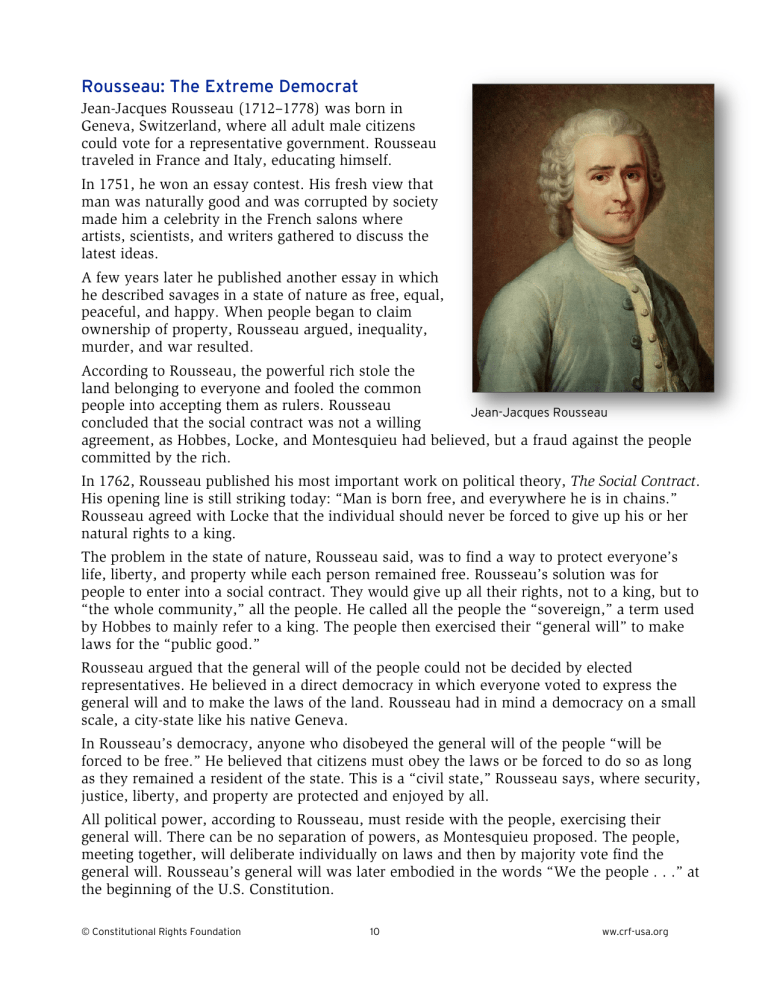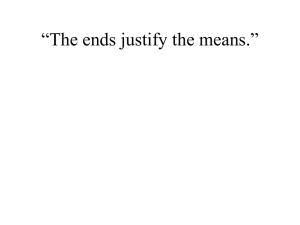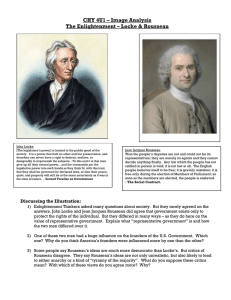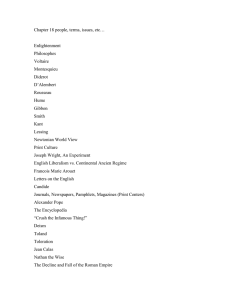
Rousseau: The Extreme Democrat Jean-Jacques Rousseau (1712–1778) was born in Geneva, Switzerland, where all adult male citizens could vote for a representative government. Rousseau traveled in France and Italy, educating himself. In 1751, he won an essay contest. His fresh view that man was naturally good and was corrupted by society made him a celebrity in the French salons where artists, scientists, and writers gathered to discuss the latest ideas. A few years later he published another essay in which he described savages in a state of nature as free, equal, peaceful, and happy. When people began to claim ownership of property, Rousseau argued, inequality, murder, and war resulted. According to Rousseau, the powerful rich stole the land belonging to everyone and fooled the common people into accepting them as rulers. Rousseau Jean-Jacques Rousseau concluded that the social contract was not a willing agreement, as Hobbes, Locke, and Montesquieu had believed, but a fraud against the people committed by the rich. In 1762, Rousseau published his most important work on political theory, The Social Contract. His opening line is still striking today: “Man is born free, and everywhere he is in chains.” Rousseau agreed with Locke that the individual should never be forced to give up his or her natural rights to a king. The problem in the state of nature, Rousseau said, was to find a way to protect everyone’s life, liberty, and property while each person remained free. Rousseau’s solution was for people to enter into a social contract. They would give up all their rights, not to a king, but to “the whole community,” all the people. He called all the people the “sovereign,” a term used by Hobbes to mainly refer to a king. The people then exercised their “general will” to make laws for the “public good.” Rousseau argued that the general will of the people could not be decided by elected representatives. He believed in a direct democracy in which everyone voted to express the general will and to make the laws of the land. Rousseau had in mind a democracy on a small scale, a city-state like his native Geneva. In Rousseau’s democracy, anyone who disobeyed the general will of the people “will be forced to be free.” He believed that citizens must obey the laws or be forced to do so as long as they remained a resident of the state. This is a “civil state,” Rousseau says, where security, justice, liberty, and property are protected and enjoyed by all. All political power, according to Rousseau, must reside with the people, exercising their general will. There can be no separation of powers, as Montesquieu proposed. The people, meeting together, will deliberate individually on laws and then by majority vote find the general will. Rousseau’s general will was later embodied in the words “We the people . . .” at the beginning of the U.S. Constitution. © Constitutional Rights Foundation 10 ww.crf-usa.org




